It goes without saying that having a baby is amazing, but it’s also completely and utterly life-changing. And it’s one of those life-changing moments that you really can’t predict or understand prior to taking that little bundle home. The transition from couple to family is one of the biggest challenges that your relationship will ever face and it’s easy to forget to nurture your relationship amidst the whirlwind of nappies, sleep deprivation and endless feeds.
The advice and opinions offered to new parents in the first year can feel overwhelming. Childcare books and well-meaning family and friends often offer advice that is in conflict with parents’ instincts. These cards are designed to help parents find the answers that are right for them, to help create happier, more relaxed individuals who are confident in their roles and decisions and work well together as a team. Designed to be dipped into time and time again, the cards can be used throughout the first year of parenthood and beyond, into the toddler years.
With this in mind, we asked Motherload bloggers Sam, Laura and Marianne; and Otherload writer Matt, for their thoughts on these fantastically thought-provoking cards:
What do you think are your greatest talents, skills and accomplishments? How could these be applied to your new role as a parent?
Sam: “I’m quite ingenious. If my toddler needs a wee when we are out and there’s no toilet in sight I will think on my 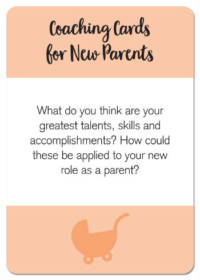 feet and use a half-finished bottle of Evian as a pee pot. I will then tip it down the nearest drain in case I forget later and take a swig. I have a good imagination which I hope enables my children to have a more colourful and creative view of the world. I try to make life magical and wondrous where I can – especially the natural world – we will often spot shapes in clouds and we call the seeds from dandelion clocks ‘fairies’. As for accomplishments, I have a strong work ethic and I keep going and going and going until the job’s done. I hope my tenacity rubs off on my children.”
feet and use a half-finished bottle of Evian as a pee pot. I will then tip it down the nearest drain in case I forget later and take a swig. I have a good imagination which I hope enables my children to have a more colourful and creative view of the world. I try to make life magical and wondrous where I can – especially the natural world – we will often spot shapes in clouds and we call the seeds from dandelion clocks ‘fairies’. As for accomplishments, I have a strong work ethic and I keep going and going and going until the job’s done. I hope my tenacity rubs off on my children.”
Laura: “One of my greatest skills is organisation and efficiency. This is really important as a parent as there is a lot to organise and not a lot of time. For instance packing for a day out with food, milk, bottles, changes of clothes etc. and actually getting out of the house on time is quite the task! I previously trained as a teacher and so I think some of the skills I picked up in terms of discipline and education will come in useful.”
Marianne: “Part of my job involves making complex subjects easy for people to understand and telling a good story. I seem to use this with my children just about every day too! It’s so much easier to explain things with stories that children relate to. I am also creative which helps with the inevitable bored child moments. I’m often working on several projects at the same time and have to drop everything for a new deadline or priority. When my little boy decided he didn’t want to wear nappies anymore when his baby sister was born, juggling frequent breastfeeding with a toddler who needed a poo THIS SECOND gave a whole new meaning to multi-tasking!”
What kind of relationship would you like to have with your baby when he/she is grown up?
Marianne: “I want my children to be able to talk to me about anything and not think I won’t understand and ask my advice if 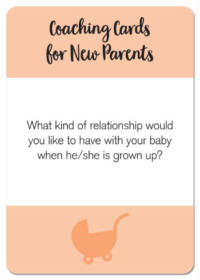 they need it. But it’s also really important to me that they are independent and can make the right choices for themselves. If they have a real passion or interest I want to encourage them to succeed in that, but as I get older, “success” means something different. It would mean more to me that they are content in their lives and I so want to see them genuinely happy whatever they are doing. Most importantly, however, I still want them to be able to come to me for a hug whenever they need one however old they are, and for it to still make a difference to how they feel.”
they need it. But it’s also really important to me that they are independent and can make the right choices for themselves. If they have a real passion or interest I want to encourage them to succeed in that, but as I get older, “success” means something different. It would mean more to me that they are content in their lives and I so want to see them genuinely happy whatever they are doing. Most importantly, however, I still want them to be able to come to me for a hug whenever they need one however old they are, and for it to still make a difference to how they feel.”
Matt: “All I’d want is for my girls to talk to me as much as they currently do and not feel like any subjects are off limits. I love it that eldest daughter confides in me about an issue she might have with a friend and asks for my advice. I will always be there listen and advise. That seems to be the main function for the parent of an adult. I also hope my eldest will have grown out of getting upset when I laugh at something she says and learns to laugh at herself. One of the most important lessons in life.”
Sam: “I would like to think I will be the kind of mother my grown-up children see as their safe harbour in a storm, the place they can retreat to if life ever gets rough. The person who knows them better than they know themselves – knows how to make them laugh, how to soothe them and how to bolster them up if they need a lift. I hope I am raising children who will become confident and capable adults, who know they are loved and that I will always be there for them, good times and bad. I want them to feel they can be entirely themselves around me – that they are accepted for all their fabulous bits and their flaws.”
What is working well for you as a parent?
Laura: “I have a very supportive husband and we work well as a team. Having his support and input is extremely important to me. I really enjoy that my daughter is in nursery part-time as it gives me the opportunity to not only work but do the boring 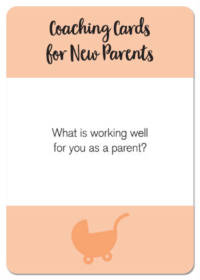 personal admin, leaving me my days off to focus on hanging out with her. Following a routine or schedule has worked very well for me as a parent. My baby sleeps well at night, naps at regular times every day and is very happy and settled. This also means I can make plans knowing when she will be awake and when I will need to let her sleep.”
personal admin, leaving me my days off to focus on hanging out with her. Following a routine or schedule has worked very well for me as a parent. My baby sleeps well at night, naps at regular times every day and is very happy and settled. This also means I can make plans knowing when she will be awake and when I will need to let her sleep.”
Sam: “With my three-year-old, I find listening to him helps, really listening. He is quite tantrum-prone (aren’t all threenagers?) but I can divert a full meltdown if I give him my full attention and explain what is happening and why. Also, it’s very boring but a good routine helps, too: Set times for meals, bath, bed and so on – not in a rigid Gina Ford way – but in a practical way. Even if I am out for the day and I may not make it home to stick to the routine, I’ll time journeys and take pyjamas so we can travel at bedtime. Sleep is King.”
Matt: “My love of regular cuddles is fed constantly by my youngest daughter. She is like a lovely little walking human cheek and loves to snuggle up with her daddy any time of day or night. I can’t get enough of those cuddles and neither, it seems, can she. If someone doesn’t seem to agree that they’re the cutest most funny things they’ve ever seen it amazes me. They are a constant joy to behold, so seeing them every day and watching them grow is a never-ending source of entertainment. When the girls recently had a week at their Nana and Poppa’s, I missed them more than I enjoyed some free time. So it’s a working pretty well, apart from the initial lack of sleep, obvs.”
How easy do you find it to ask for help? Who do you know who would be happy to help you?
Marianne: “I don’t find it easy to talk to close family and friends if I need help. I don’t want to worry them unnecessarily or make them think I’m not coping. I’d much rather get help from professionals or online communities which are more anonymous routes. I found that the availability of professionals like health visitors drops off significantly after the first six months when you have a child and even more so after your second child. There’s a gap for the times you just need a friendly and reassuring person to listen and offer support even on small issues, and for me, that gap was filled by online parenting groups. There are some amazingly supportive communities like The Motherload® where people don’t judge you and chances are someone will know what you’re going through.”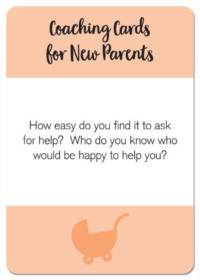
Laura: “I find it very easy to ask for help and do so regularly. I have a lot of friends with children a year or so older than my own daughter who I turn to. Group messages usually work best, either on Facebook or Whatsapp, because then I can get a variety of responses and points of view and people comment on each others’ approaches. On occasion I have gone to online groups to ask questions, although I find that less helpful than asking people I know. This is because the people I know have similar lives to me and I also know how similar to my daughter their children are.”
Sam: “This is my downfall. I struggle to ask for help but I am getting better. I used to feel swamped by housework (I work three long days a week), so now I have a cleaner. I still have a massive problem asking someone to care for my offspring so I can do something pleasurable for myself – but I feel less guilty if I need to work, or if I have some chores to do around the house. I usually speak to my mother-in-law, who has my little boy when I work, about childcare issues, my own mum about anything emotional and my husband will usually offer up a practical solution (although it may not actually involve him being the ‘helper’). I also have a couple of close mummy friends I can turn to. I usually find once I have asked for help, it is forthcoming – I just need to stop martyring myself unnecessarily.”
Barefoot Coaching Cards are offering members of The Motherload® who are registered on our site an amazing 15% off all of their product range. You can discover more about these fabulous cards for you, your family, career and business at www.barefootcoachingcards.co.uk/life
Thanks to Laura Cross, Samantha Curtis, Matt Dyson and Marianne Marshall for their contributions to this sponsored post. The Motherload® has received payment for this piece, but as ever, it has been written in line with our ethos of being completely honest with our users.


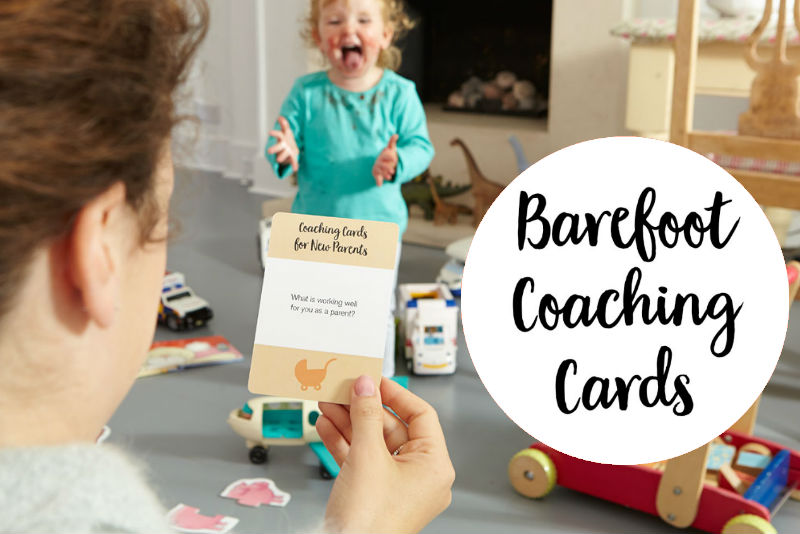
No comments yet. Be the first one to leave a thought.